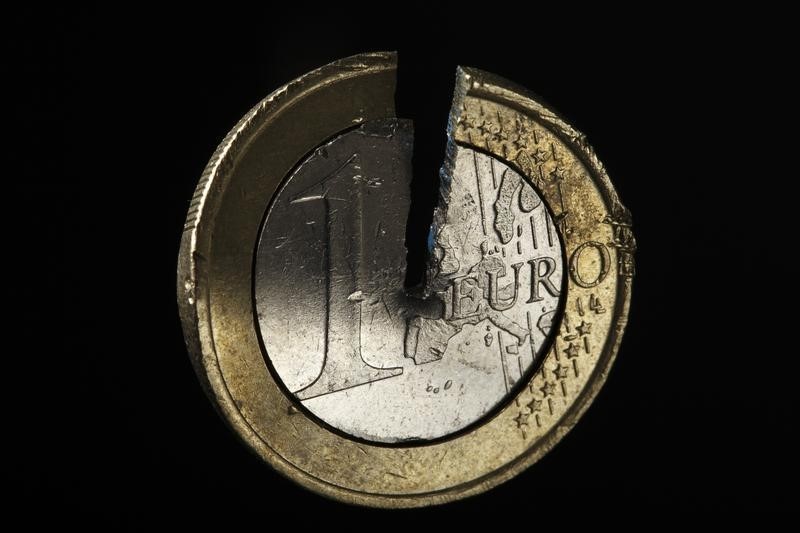* Graphic: World FX rates in 2019 http://tmsnrt.rs/2egbfVh
By Saikat Chatterjee
LONDON, Jan 24 (Reuters) - The euro weakened to a seven-week
low on Friday as lacklustre PMI data added to the broader market
conviction that European central bank policymakers will maintain
a loose monetary policy for the near future.
Euro zone business activity remained lacklustre at the start
of the year, a survey showed, a day after ECB rate-setters did
not make any policy change, standing by their pledge to keep
buying bonds and, if needed, cut interest rates until euro zone
inflation headed back to their goal. The data added to expectations that a rate hike is ruled out
for the rest of the year, with Nordea analysts expecting a 10
bps increase only in the second quarter of 2023.
Though there are no expectations for a rate hike from the
U.S. Federal Reserve as well for the rest of the year, the 160
bps plus interest rate differential in benchmark interest rates
between the euro zone and United States is expected to drive the
single currency lower.
Indeed, the euro EUR=EBS is set for its worst start to the
year in five years, down 1.5% so far this month, and trading at
its lowest levels since Dec. 2 at $1.1031.
"The euro is seeing renewed institutional selling since the
start of the year with expectations that the Fed is probably on
hold now while the ECB explores their options to add liquidity,"
said John Marley, a senior FX consultant at FX risk management
specialist, SmartCurrencyBusiness.
It was near a five-week low against the British pound
EURGBP=D4 and 33-month low against the Swiss franc EURCHF= .
Implied volatility on one-month euro/dollar exchange rates
EUR1Mo= also drifted towards a record low of below 3.7%, yet
another indicator of how low expectations are from investors of
any change in European policy rates.
"Some people were hoping that (ECB chief Christine) Lagarde
could talk about the possibility of policy normalisation after
Riksbank ended negative interest rates late last year. But there
was absolutely no such indication from her," said Kazushige
Kaida, head of foreign exchange at State Street Bank.
Riksbank, the central bank of Sweden, ended five years of
negative interest rates last month, despite a slowdown in the
Swedish economy. The dollar index .DXY rose 0.2% at 97.87 and was on track
for a third consecutive week of gains.
The Australian dollar traded at $0.6846 AUD=D4 , erasing
the gains made after a strong jobs report the day before and
heading for a fourth consecutive week of losses.
<^^^^^^^^^^^^^^^^^^^^^^^^^^^^^^^^^^^^^^^^^^^^^^^^^^^^^^^^^^^
Euro start https://tmsnrt.rs/2TZjV61
^^^^^^^^^^^^^^^^^^^^^^^^^^^^^^^^^^^^^^^^^^^^^^^^^^^^^^^^^^^>
